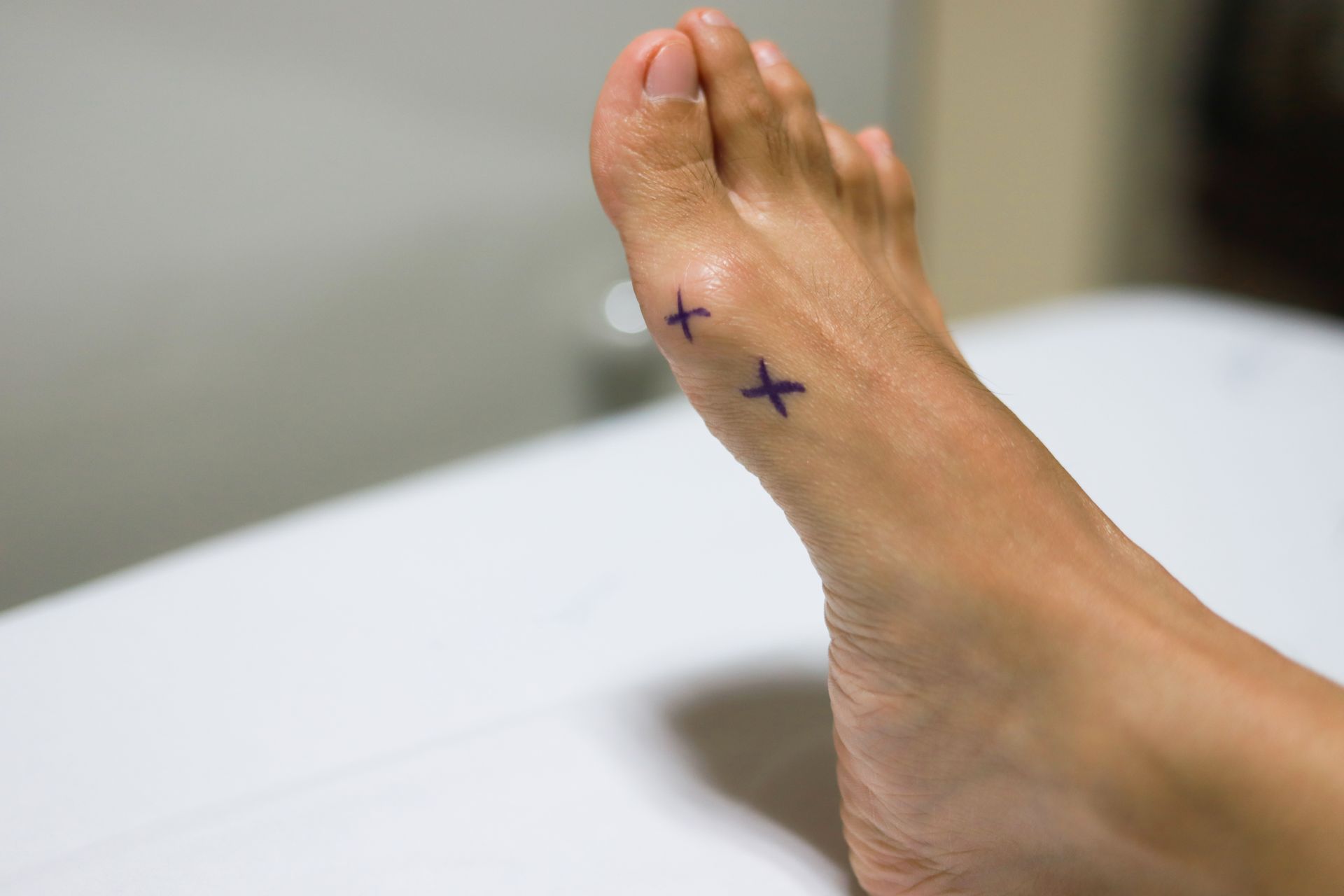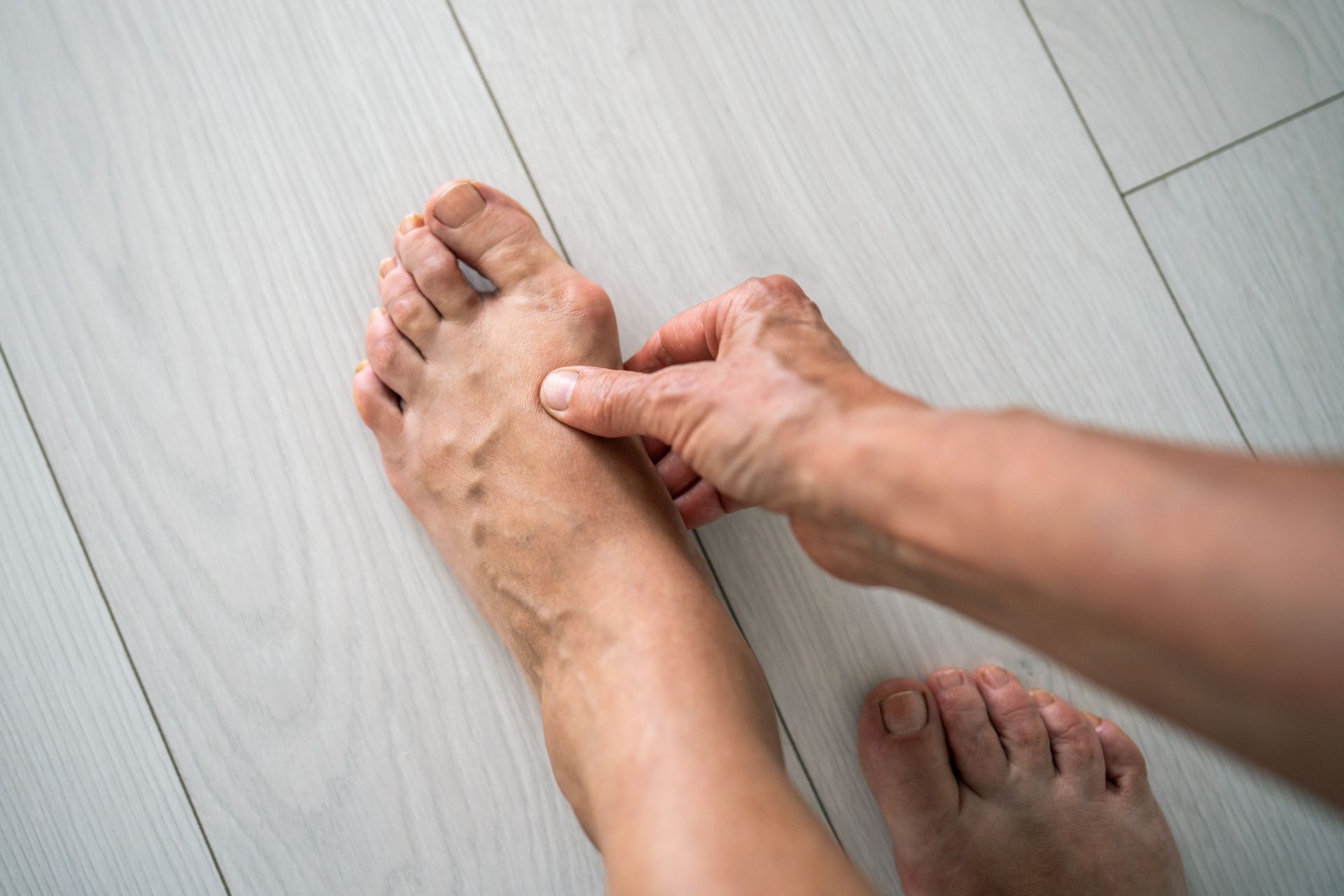A Guide to Treating Ingrown Toenails: Finding Relief in Baton Rouge
Ingrown toenails are a common and painful condition that can make everyday tasks, such as walking or standing, uncomfortable. They occur when the side or corner of your toenail grows into the soft skin surrounding it, causing redness, swelling, and, in some cases, infection.
Left untreated, an ingrown toenail can worsen, leading to more pain and a greater risk of complications. With the right treatment plan and ongoing foot care, you can heal comfortably, stay active, and prevent future issues from developing.
What Causes Ingrown Toenails?
Several factors can increase your risk of developing ingrown toenails:
- Improper Nail Trimming: Cutting toenails too short or rounding the edges encourages the nail to grow into the skin.
- Tight or Poorly Fitting Shoes: Shoes that squeeze or crowd the toes can push nails into the surrounding tissue.
- Injury to the Toe: Stubbing your toe or other trauma can alter nail growth.
- Genetics: Some individuals naturally have curved nails or toe shapes that increase the likelihood of ingrown nails.
How to Treat Ingrown Toenails
In the early stages, some mild ingrown toenails can be managed at home with careful care:
- Warm Foot Soaks: Soaking your foot in warm water with Epsom salt can reduce swelling and discomfort.
- Loose Footwear: Wearing shoes that don't press on your toes can help relieve pain and promote healing.
- Over-the-Counter Pain Relief: Medications like ibuprofen can help reduce inflammation and pain.
- Gently Lifting the Nail: Placing a small piece of clean cotton under the edge of the nail may help it grow in the right direction.
If your ingrown toenail isn't improving, don't wait to seek professional help. Hall Podiatry offers comprehensive treatment options designed to reduce discomfort and promote healing. Whether it's a minor issue or a recurring problem, we're here to provide effective solutions that protect your foot health.
Preventing Ingrown Toenails
Preventing ingrown toenails is often as simple as adopting a few good habits. Always trim your toenails straight across, avoiding cutting them too short or rounding the edges. Wear shoes that fit well and provide your toes with enough room to move comfortably, thereby reducing pressure on your nails. Keeping your feet clean and moisturized helps maintain healthy skin and nails.
If you're an athlete or have a condition like diabetes, paying extra attention to your foot care is especially important to avoid complications.
When to See a Podiatrist for an Ingrown Toenail
Mild cases may improve on their own, but it's time to see a specialist if:
- The pain doesn't improve with at-home care.
- You notice signs of infection, such as pus, redness, or warmth.
- You frequently or recurrently experience ingrown toenails.
- You have diabetes or other conditions that make foot injuries more serious.
Expert Ingrown Toenail Care in Baton Rouge
At Hall Podiatry, we are committed to providing personalized treatment for ingrown toenails tailored to your unique needs. Dr. Patrick Hall, DPM, is board-certified in foot and ankle surgery, combining his clinical expertise with a personal understanding of the demands that an active lifestyle requires. Dr. Hall works closely with each patient to relieve pain and help you maintain the mobility and comfort you need to keep moving forward.
If you're dealing with ingrown toenails that won't go away, schedule an appointment with Hall Podiatry today and take the first step toward lasting relief.


